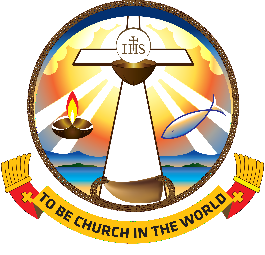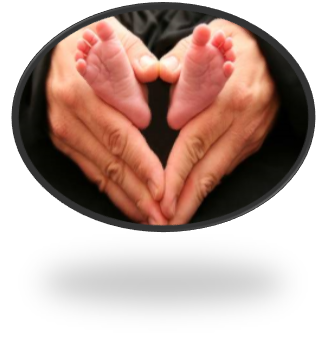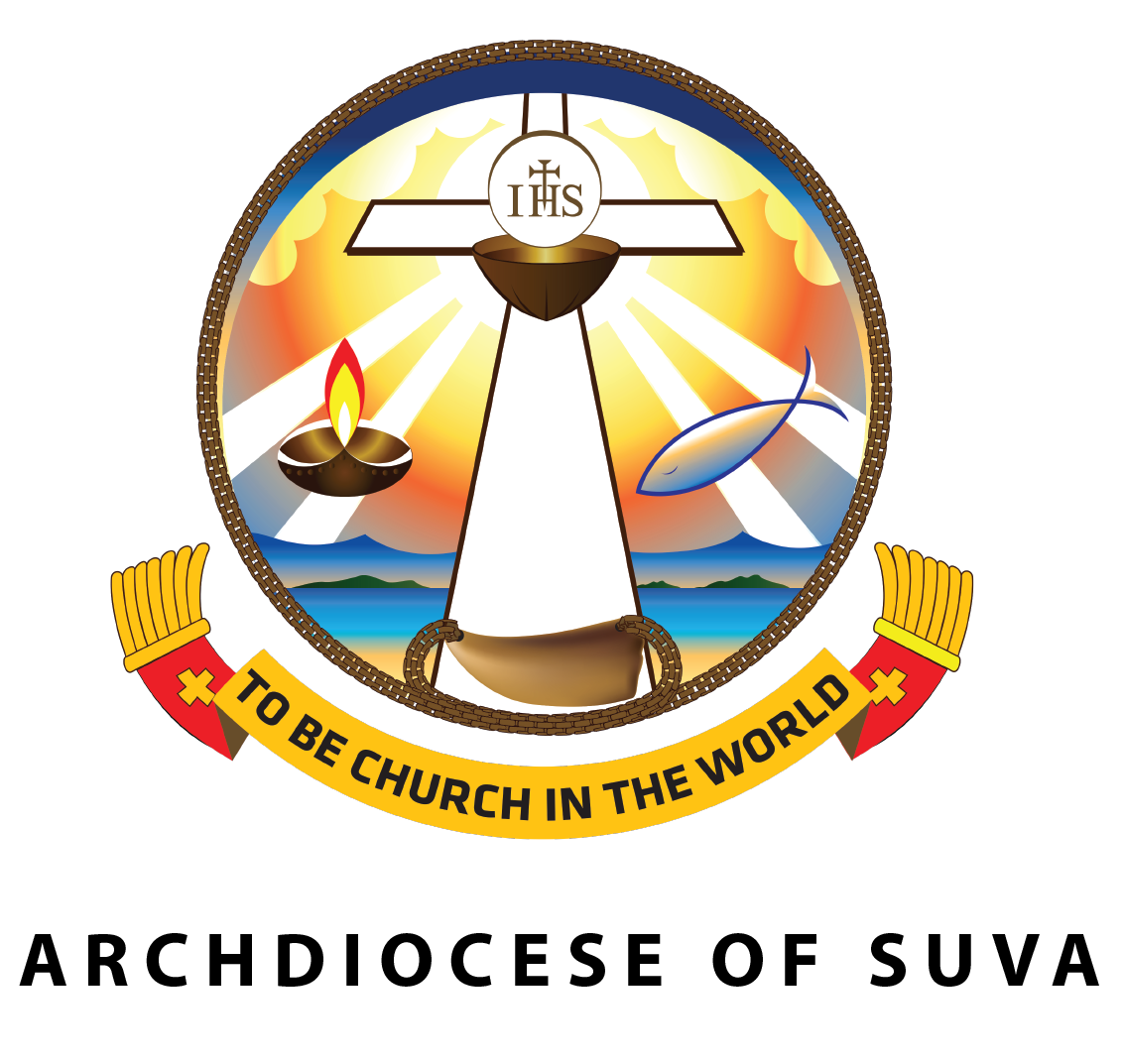MADE IN THE IMAGE OF GOD
We are made in the image of God. God made us sexual beings, male and female. Sexuality is a wonderful gift from God. However, today we read alarming reports of various forms of violent abuse of this beautiful gift of sexuality. Sex related crimes top the crimes that are dealt with in the Fiji courts. High Court Judge Justice Salesi Temo said that Fiji’s High Court is turning to be a ‘rape court’. He said that from January to July 2017, two thirds of cases dealt in the Suva, Lautoka and Labasa courts were rape cases. He said there were 264 rape cases, 43 aggravated robberies and burglary, 41 murders, 13 illicit drugs, three seditions and 35 other cases.
The Director of Public Prosecutions Office (DPP) recorded that between January to December 2017, 227 people were charged with a total of 444 separate counts of serious sexual offences. 24 of the accused persons were under the age of 18 years. The youngest accused person charged with rape was a 12-year-old boy. There were 300 cases of rape, 7 cases of attempted rape, 10 cases of assault with intent to rape, 6 cases of abduction with intent to rape, 17 cases of indecent assault, 23 cases of defilement and 81 cases of sexual assault.
The DPP’s Office recorded that there were 200 victims of the 444 separate sexual offences in 2017, of which 130 were under the age of 18 years. All accused persons charged with sexual offences were male, however, victims of the sexual offences were both male and female comprising 184 female victims and 16 male victims. 76 offences occurred in domestic relationships or where the accused knew the victims. To date, the youngest victims of serious sexual offences are 1 year 10 months and 1 year 11 months old babies and the accused persons were the father and grandfather of the victims respectively. (FT Online, 6/2/18)
Fiji Adolescent Health Situation Analysis 2016 report showed that sexual crimes are a serious concern. Between 2011 and 2015 there were 14,052 sexual offences reported to police that involved adolescents (10 – 24 years) including 1,259 rapes of girls and 212 rapes of boys. This is an underestimate as all cases would not be reported. Reports of rape are more prevalent in the ITaukei community than in other communities.
Root Causes of Sex-Related Crimes
Fr. Frank Hoare’s research on sex-related crimes identified some of the root causes of sex-related crimes.
- Parents who deny their children love, support, time and accompaniment.
- Physical and emotional abuse by parents.
- Parents who are immature and are substance (drug, alcohol, and yaqona) abusers.

March 2018 Newsletter
Signs of the Times

- Patriarchal cultures that treat women and children as sexual objects.
- Parents who neglect their children by spending more time at work, drinking yaqona, attending Church activities.
- Parents who unable to deal positively with their children’s sexuality.
- Children who move to families in urban centres for education. They often feel unwanted and have to help out financially.
- New communication technology in form of internet, cell phones, Facebook, social media and pornography.
- Poverty is one of the reasons behind prostitution.
Sex-related crimes points to a serious break down in Fijian culture.
My experience in conducting youth seminars reveal that most young peoples’ hurt are related to parental relationships. This shows that parental abuse through physical and emotional abuse or through neglect of love and acceptance are one of the causes of emotional imbalance, hurt and sexual deviance. The Child Welfare department records that physical abuse and emotional neglect is a common experience among disadvantaged children. In 2016 the department documented 305 cases of neglect, 176 cases of physical abuse, 109 cases of teenage pregnancy, 65 cases where the child was beyond control, 42 cases of emotional abuse; 30 victims of parental conflict, 27 cases of malnourishment, and 14 cases of attempted suicide.
Church’s Pastoral Response
This article is not meant to provide an in-depth study of rape and sexual abuse. Rather it hopes to raise our awareness to seriousness of sex-related crimes, provide some theological reflections, and pastoral responses.
Sr. Pauline Logue’s study on ‘The Treatment of Rape in Theology’ (2000) points out that “physical rape is but one aspect of the total rape experience; the physiological, psychological, emotional and spiritual repercussions are equally significant and, in some cases, even more so. Clearly then, an exclusively physical approach to the question of rape is considered to be theologically inadequate.”
Sr Logue’ states that rape victims’ experience a faith crisis. They find it difficult to believe in a loving and protecting God. One victim exclaims: “The more I remembered, the more I realized that God did not care for me at all. If he didn’t care for me, He wasn’t who I thought He was. And who was He? It’s been an incredible loss… I haven’t been able to find a God I can believe in.” Sr Logue adds that rape victims find it hard to relate to God who is male and father.
Sr Logue states that the bible is written from a social context where women are seen as male properties. Hence, rape in the Old Testament is largely viewed as an act of aggression on male property. Likewise, the New Testament does not give an in-depth discussion on rape. Instead rape is addressed in the context of adultery, vice and impurity.
The Catholic Catechism no. 2356 states that rape is the forcible violation of the sexual intimacy of another person. It does injury to justice and charity. Rape deeply wounds the respect, freedom, and physical and moral integrity to which every person has a right. It causes grave damage that can mark the victim for life. It is always an intrinsically evil act. Graver still is the rape of children committed by parents (incest) or those responsible for the education of the children entrusted to them.
The statistics above show that sex-related crimes top the list of crimes that the Fiji courts have to deal with. In other words, rape is a serious social problem and the Church cannot turn a blind eye to this reality. We have to find a way of speaking about the God’s mercy to victims of sexual abuse and formulate pastoral responses. I strongly recommend our parish pastoral councils, youth, women, and men’s groups and other parish ministries raise awareness and discuss pastoral responses to rape and other sex-related crimes. We need to reflect of the following questions: How can we respond to their physical, emotional, psychological and spiritual needs? How do we minister God’s mercy and forgiveness to victims of sexual abuse? How can we raise peoples’ awareness on sex-related crimes?
Responding to Sexual Abuse
I have copied below the US Conference of Bishops’ response to sexual abuse, “Walk in the Light: A Pastoral Response to Child Abuse”, (1995). I hope the document will help our reflections and responses.
In the Gospels we see that Jesus healed in different ways. He offered physical healing as well as a deeper, spiritual healing. His words, spoken in truth and love, also brought healing, even when they made his listeners uncomfortable. He responded to those who sought healing for themselves, as well as those who interceded for others.
Like Jesus, the Church reaches out to offer healing and reconciliation to people who seem to be without hope. Desiring to restore wholeness to the victims/survivors of sexual abuse and to their families, and wanting to break the cycle of abuse, we seek to:
- Offer physical safety and help for sexual abuse victims/survivors;
- Bring about spiritual and emotional healing, forgiveness, and reconciliation for victims/survivors and their families, recognizing that it is not always possible to keep the family together;
- Raise awareness about the issue by our preaching and teaching;
- Offer help and support for abusers while holding them accountable for their actions;
- Promote the education of pastors and church workers about the issue and encourage them to provide appropriate assistance.
We do not minimize the complicated nature of sexual abuse or the task involved in prevention, intervention, and support of people seeking to surmount the past. We believe, however, that parishes can play a crucial role in this process through the liturgy and sacraments, education, and support of empathetic and knowledgeable parishioners. A survivor attests to this, writing that she found God revealed in the liturgies of her parish community. She says:
“As I walked the dirt roads of Calvary . . . I knew that Jesus, like me, experienced all of the same brutal pain I was experiencing. I knew this Jesus the church elevated during the Eucharist was indeed a human Jesus . . . and in the midst of the assembly I experienced his healing and compassionate love.”11
What Can We Do Together?
As a community of Christians, we have the means to shatter the walls of loneliness, shame, and fear that isolate those who are sexually abused and those who have survived abuse. They need us, and we need to hear their stories of pain, endurance, and courage. We also need to let abusers know that while we hold them accountable for their behaviour, they can be forgiven.
Some practical suggestions for developing simple action plans at the local level:
For parishes (many of these suggestions can be adapted for use by dioceses)
- Create an atmosphere of welcome, trust, and safety in your parish that encourages people to come forward: the abused, abusers, and all those affected by abuse, such as mothers who suspect that a friend or family member is abusing their child, as well as family members who may be in a position to offer support and security to the abused person.
(In the Sacred Heart Cathedral Parish we established a group called the ‘Women at the Well’ led by Sr. Mariana SM to create a safe space for women to tell their stories.)
- Establish a procedure to respond when someone approaches a staff member about sexual abuse. Have available a list of referral agencies and resources to give to people who request help. Become familiar with state reporting requirements as well as diocesan policies concerning sexual abuse.
- Develop a network of people with expertise in dealing with sexual abuse. Regularly publish a contact’s name and phone number in your Sunday bulletin.
- Mention of sexual abuse within a homily, when appropriate, lets people know that the preacher is aware of the issue. This sometimes opens the door for people to seek assistance.
- Many abused persons and abusers turn to their parishes to find healing and reconciliation. Abused persons need justice and compassion; abusers need accountability, repentance, and support. A prayer service or special liturgical ceremony can help people as they set out on renewed lives.
- Develop programs to teach people about sexual abuse issues. For children, programs should discuss appropriate and inappropriate behaviour and include suggestions on where to go if they think they are being abused. Programs for parents should help them to talk with their children about their bodies and the right to privacy, as well as about personal safety and self-protective strategies.
- Raise the questions of violence and the roles of men and women within the family as part of marriage preparation. Delicately introduce questions about how each prospective spouse was treated growing up, how their parents treated each other, and how they expect to act toward their spouse and their children.
- Promote the use of language in parish programs and materials that reflects the equal dignity of women.
- Share information and resources with other parishes and dioceses that are also trying to address sexual abuse issues.
- For those who are, or have been, sexually abused and their families
- Look on your parish as a source of support, strength, and assistance. In particular, locate one adult within the parish with whom you can talk about your experiences.
- Realize that you are not alone; many others, men and women, have also experienced abuse. If possible, find a parish or community support group for those who have been abused. Such groups can help survivors of sexual abuse learn how to find healing and courage to build a new, hope-filled life.
- Once the healing process is underway join in parish and/or community activities to combat sexual abuse. Reaching out to others can help the healing process.
- During this Lenten season let us walk with those who suffer. Like Simon of Cyrene, let us lighten their suffering and burden and walk with them.
